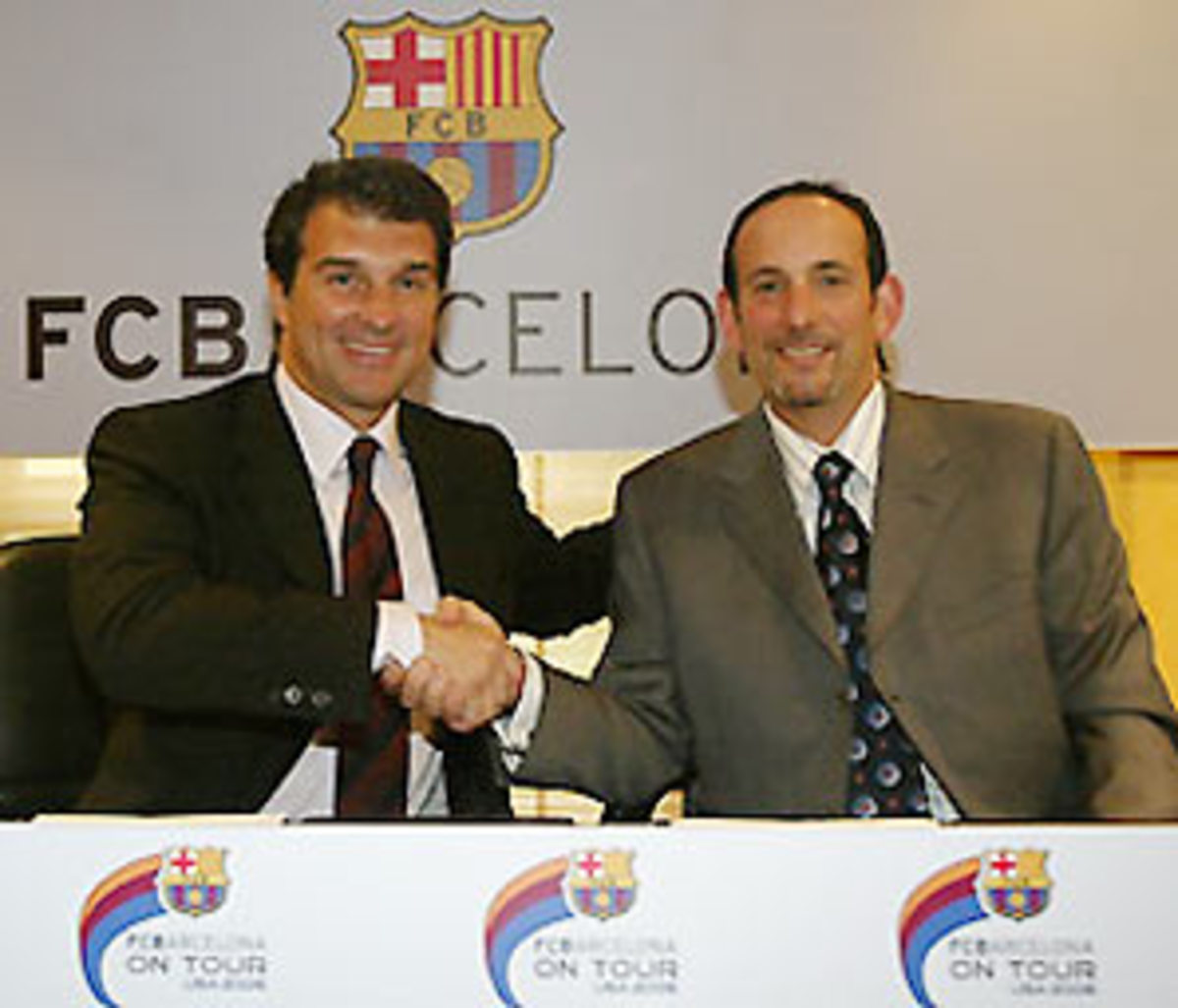Barça out of Miami -- now what?
"I want to thank both FC Barcelona and Marcelo Claure for the tremendous effort to bring an MLS expansion team to Miami," said league commissioner DonGarber in a press release. "FC Barcelona is one of the best managed and strategically operated sporting clubs in any sport in the world and I appreciate the opportunity that we have had to work with them and Marcelo Claure over the last few months."
The announcement ends months of speculation regarding the viability, or lack thereof, regarding Miami's bid, but leaves many threads unraveled. While the prospect an MLS return to Miami -- where the Fusion operated for four seasons (1998-2001) before being contracted, along with Tampa Bay -- was saluted in some circles, including by numerous media members, Garber expressed qualms about the Miami bid even before it was officially submitted.
Garber raised concerns regarding the Miami professional sports market and a proposed facility-sharing arrangement at the Florida International University football stadium, which has artificial turf, among other issues. MLS and Barcelona formed a five-year strategic partnership last year; independently, Claure and Barcelona president Joan Laporta agreed on a joint expansion bid, one of seven original applications submitted for evaluation in the next round of expansion, set for 2011.
During a vacation in Spain last month, Garber met with Laporta, and for the first time announced that if Miami's bid was accepted, the team would begin play in 2010, not 2011, as Claure had insisted from the beginning. Last week at the club's regular financial meeting, Barcelona CEO Joan Olivé expressed concerns about its obligation to the MLS project.
Claure, a Bolivian-born millionaire and founder of Brightstar Corp. -- a telecommunications manufacturer and distributor of cell phones and accessories, wireless data equipment and prepaid wireless products -- last year formed an alliance with Barcelona to apply for an MLS expansion franchise. Formerly the president of Bolivia's Club Bolívar, Claure had worked with the Spanish club on exchanges and development programs.
"It was one of the most unfair dates in the world, for we signed a collaboration agreement," said Claure in an interview last November. "We are allowed to send players, managers and coaches to each other's teams. Obviously, [Laporta] has not sent one and I have sent as many people as I can."
In '07, Brightstar -- based in Miami -- listed 3,500 employees and revenues of $4.4 billion. Not known is how far those figures dropped in '08 due to the severe economic downturn in many parts of the world. Brightstar does a great deal of business in South America, where access to cell phones and telecommunication services is limited by topography and vast distances between population centers.
Seldom mentioned in press reports but very much a sticking point, according to two sources, was Adidas' objection to allowing perhaps the most prominent Nike team property into the league. In '04, Adidas signed an exclusive outfitting contract with MLS that runs for 10 years and is worth more than $100 million. Nike and Barcelona are locked into a sponsorship deal that doesn't expire until 2013.
In the November interview, Claure said, "There are some issues we need to take care of. The stadium is one, MLS is not happy with everything. There is a league sponsor and it is not Nike, so we need to take care of that."
Apparently, enough issues couldn't be taken care of to eliminate Miami for now, though all parties concerned expressed the possibility of Miami trying again in the future.
The withdrawal of Miami leaves four possible expansion candidates, should MLS stick to its timetable and announce the two 2011 teams in the next few weeks: Vancouver, Portland, Ottawa and St. Louis.
St. Louis has failed to secure a lead investor and impressed as the MLS Board of Governors were by the Ottawa bid, which includes a viable stadium project, during the MLS SuperDraft Garber hailed the "possibility" of renewing Northwest rivalries in Vancouver and Portland if they were to follow Seattle into MLS.
Problems with stadium projects in both Vancouver and Portland taint their bids, and a bleak economic landscape might suggest caution -- and a hiatus on expansion -- as a prudent course. But adding two more teams at $40 million per may trump all else, wisely or not.





